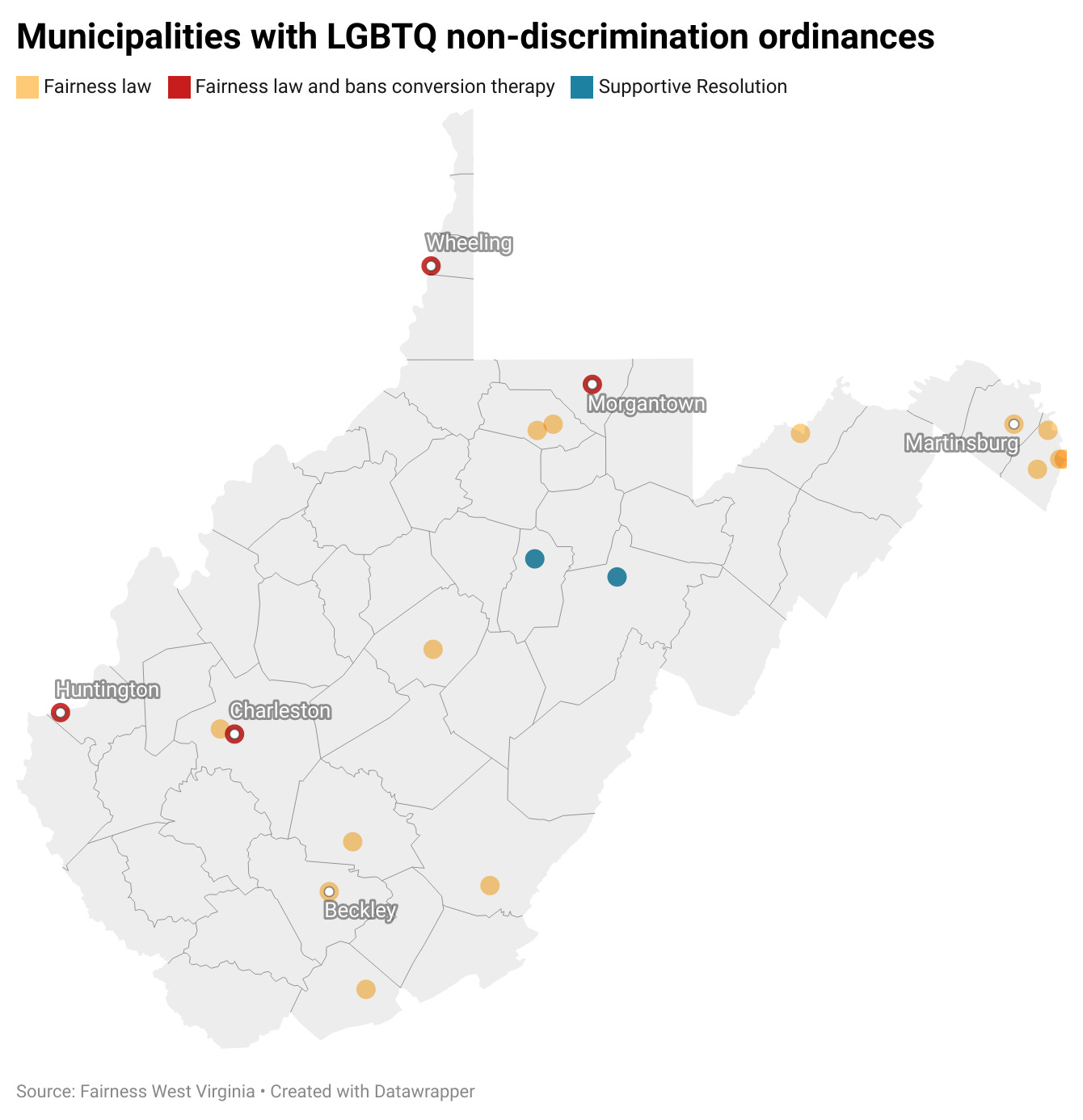The State Of West Virginia Journalism
As the session nears, three veteran reporters from the Charleston Gazette-Mail were fired.
Good morning!
It's Monday, December 19th and welcome back to 60 Days.
There are 23 days before the start of the West Virginia Legislature's regular session and the plot is thickening on a couple of different fronts.
So, grab your coffee (and maybe buy us one, too) and let's get to it.
As a person who spent years walking the marble floors of the state capitol, I can tell you that no news organization — and the whole of the Capitol press corps — will ever be fully equipped to keep watch on what happens under the dome.
It's an overwhelming task: Scanning through hundreds upon hundreds of bills, running from one committee meeting to the next and trying to figure out what is and isn’t worth valuable time and energy. The issues can be complex, the language can be esoteric. Being able to make sense of it all only comes with experience and institutional knowledge.
Last week, the press corps lost three veteran reporters after they publicly criticized H-D Media President and House Minority Leader Doug Skaff for inviting former Massey Coal CEO and former federal inmate Don Blankenship onto a podcast produced by the paper.

After taking to Twitter to call into question Skaff’s decision to offer Blankenship a platform, education reporter Ryan Quinn, health reporter Caity Coyne and statehouse reporter Lacie Pierson were all dismissed.
Ryan, Caity and Lacie are all top notch — and each has contributed invaluable coverage of the statehouse (and beyond) on their respective beats.
While Skaff and the Gazette-Mail will likely backfill these positions, it’s almost a sure bet that whomever steps in will need some time to get their footing in making sense of the whirlwind that is a 60-day legislative session.
It’s worth noting that when the firings were reported, the podcast episode in question could not be found online.
When I pointed this out in a tweet, Caity told me the Blankenship episode was prematurely released, and that it had been taken down so it could be properly promoted, even as it gained traction as a result of the firings.
I could probably write much longer about all of this (and the state of the news media in West Virginia deserves quite a deeper dive at some point), but a few other thoughts come to mind:
Given that Giles and I aren’t going to be able to be on the ground for the session, we'll be forced to rely heavily on other journalists we trust. Losing reporting from these three makes this endeavor all the more important and complicated. *Shakes fist at sky.*
Constructive criticism of a newsroom’s leadership and its decisions are extremely common. In fact, it's healthy.
And, finally, not only do these firings hurt the reporters themselves, but West Virginians across the state are handicapped by having fewer well-tuned eyes and ears in Charleston.
DHHR Secretary resigns, focus sharpens on agency reforms
After much scrutiny, West Virginia Department of Health and Human Resources Secretary Bill Crouch announced his retirement last week.
As of late, much of the focus has been on allegations made by Disability Rights West Virginia - namely that patients had been abused at William R. Sharpe, Jr. Hospital, a state-run psychiatric facility in Weston. Senate President Craig Blair (Berkeley) wrote a letter to Gov. Jim Justice in October detailing the allegations and calling for a formal investigation.
Since then, criticism of Crouch and the department mounted.
Despite Crouch’s abrupt exit, it’s almost sure that lawmakers will call for reforms to DHHR in the coming session — though what exactly will happen is unclear, especially considering Gov. Justice vetoed a bill earlier this year that called for the agency to be split into two parts.
Fairmont passes LGBTQ protections, but a statewide Fairness Act remains unrealized
Last week, Fairmont became the 18th municipality in West Virginia to pass a non-discrimination ordinance based on a person’s sexual orientation or gender identity.
These ordinances offer the LGBTQ community protections from discrimination in employment and housing. Some towns have taken it a step further by banning the pseudoscientific practice of “conversion therapy.”
Fairness West Virginia, a non-profit advocacy group that lobbies for equal rights for the LGBTQ community, has seen increasing success in working to enshrine these protections at the municipal level.
But efforts to pass legislation that would cover the entire state have been blocked by Republican leadership for years. Democrats have moved time and again to bring a bill to the floor, only for such efforts to be derailed by the GOP majority.
With Congress passing and President Biden signing the Respect for Marriage Act, LGBTQ rights issues are back in the public consciousness.
But given the track record of non-discrimination efforts at the statehouse in recent years — and even larger GOP supermajorities at the statehouse come January — Fairness West Virginia and other groups lobbying on these issues have their work cut out of them.
Clarification: This post has been edited to state that Pierson’s title at the Gazette-Mail was “statehouse reporter” rather than “courts reporter.”




